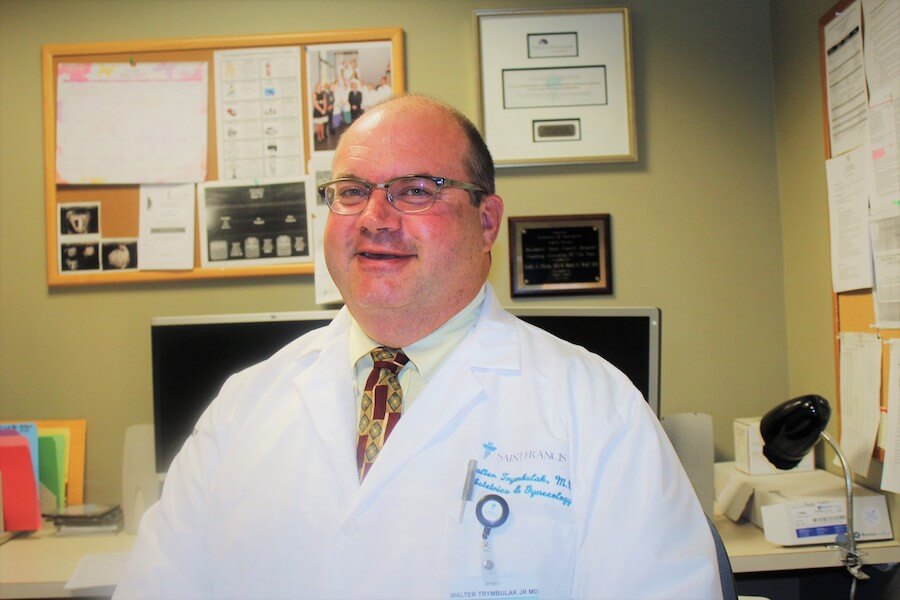It was 11 a.m. on Christmas Eve when the woman came to see Dr. Walter Trymbulak. She was there for her regular prenatal visit, but she also had a more pressing problem: miserable pain in her mouth from a huge dental abscess.
“We were able to just pick up the phone and call one of the people that we had just formed a relationship with over in the dental area here at Saint Francis,” said Trymbulak, an obstetrician who served as medical director for the Women’s Health Center at Saint Francis Hospital and Medical Center in Hartford. “She got over there, and by 1 o’clock, her abscess was cared for and she was squared away for Christmas.”
That might sound like an unremarkable example of how health care should work, but to Trymbulak, it represented tremendous progress, the kind of seamless care delivery that was only possible because of significant changes involving technology, procedures, and relationships. Trymbulak and his team made these changes over the course of a year with a grant from the Connecticut Health Foundation.
Oral health care is critical for women during pregnancy. Dental disease can result in preterm labor or other adverse outcomes. Despite that, many pregnant women – particularly low-income patients like those who get their care at the Women’s Health Center – have trouble getting dental care.
“There is often apprehension associated with caring for dental problems in pregnancy,” Trymbulak said. “It’s not really something that a lot of dentists do on a regular basis, and because of that, they don’t necessarily feel comfortable just diving in.”
Add to that the longstanding disconnect between medical and dental care, and many pregnant women don’t get the oral health care they need.
To tackle those challenges, Trymbulak and his team at the Women’s Health Center made several changes to the clinic’s procedures and technology.
They developed a series of questions to ask women at their first prenatal visit to find out if they had a dental provider and received oral health care in the past year (most said they had a dental provider, but hadn’t been to the dentist in the past 12 months).
The team created a new section in patients’ electronic medical records to track their oral health care.
To ensure that health care providers who treat pregnant women understand the importance of oral health care, they embedded curriculum from the Smiles for Life program into a UConn School of Medicine course on reproduction, and staff at the Women’s Health Center took an online course on oral health in pregnancy.
Trymbulak’s team also worked to develop relationships with dental providers in the area, so pregnant patients who needed care could get it promptly. After some women missed their appointments, the center’s patient navigator worked with the women to schedule new visits and ensure they had transportation to get there.
In addition, Trymbulak created a letter of introduction for pregnant women to bring to their dentists. It addressed some concerns that might come up, noting that her doctors at Saint Francis say it’s fine to receive Novocain or take Tylenol or certain antibiotics – and where to call if they had additional questions. “If the dentist had any questions, they could just call us and get an immediate answer,” Trymbulak said.
This model of integrated prenatal oral health care can be a source of change for both individuals and the health care system. It’s a model that can be replicated by other ob-gyn clinics that serve low-income women to ensure they receive critical but often overlooked oral health care.
At the Women’s Health Center, Trymbulak hopes that the new system will help to instill good oral health habits for life – both for the moms and their children.
Read more about the importance of oral health during pregnancy.
